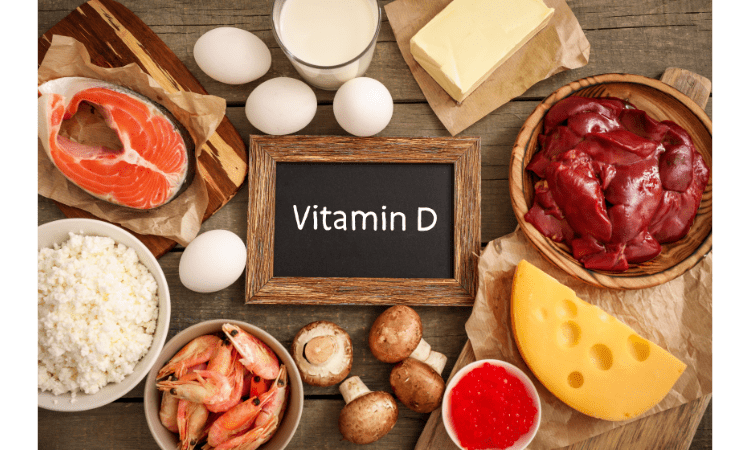
Vitamins are essential for the body to function properly. Women need to take vitamins in order to stay healthy and prevent diseases. These are substances that the bodies of men and women require but cannot make on their own. They play a role in every process of life, from growth and development to reproduction and metabolism. If women usually do not get enough vitamins from their diet or other sources, then supplementation may be a good idea for women who want to stay healthy during their childbearing years.
About vitamin

Vitamins are organic compounds that are essential for growth and development, maintaining the body’s tissues, and regulating metabolism. They may be synthesized in the body or obtained from foods. In general, these do not promote growth but rather prevent nutritional deficiencies that may result in diseased conditions such as scurvy or rickets.
These are classified into two categories: fat-soluble and water-soluble vitamins. Some of them can be made by the body while others need to be provided through food sources so they can’t be stored in high amounts within our tissues.
Why should women take vitamins?
Vitamins are essential to our health and play a very important role in the normal functioning of the body. They help men and women to fight off infections, maintain a healthy immune system, develop strong bones and muscles and also promote growth at various stages of life.
These are necessary for good health because they aid in the absorption of nutrients from food into our bodies. Vitamins can also be obtained from natural foods such as fruits, and vegetables, or dairy products like milk or cheese. They help the body by improving physical performance so that you can perform better during exercise or sports activities like walking long distances without feeling tired easily.
Also Read: 7 Health Habits Women Over 40 Should Avoid
Women take vitamins on a daily basis
As you can see, women take vitamins on a daily basis. Here is a list of the most important vitamins for women:
- Vitamin A – Helps with night vision and skin health.
- Vitamin C – Helps fight off colds and boosts your immune system.
- Vitamin D – Helps build strong bones in children and adults alike; also helps prevent cancer.
- Vitamin B6, B9, and B12 – Help keep the brain working well as we age; they help prevent heart disease and dementia later in life too.
Vitamin D

Vitamin D is a fat-soluble vitamin that plays an important role in the body’s absorption of calcium, phosphorus, and magnesium. It also helps the body to absorb iron. Since it is a fat-soluble vitamin, only 100 IU (International Units) should be taken daily.
A Woman can obtain vitamin D from food sources like egg yolk, fish oil, and butterfat; however, most people don’t get enough of this nutrient from their diet alone. Most women need to take supplements in order to meet their daily vitamin D requirements.
Vitamin B ( B6, B9, B12 )

B vitamins are a class of water-soluble vitamins that include thiamine, riboflavin, niacin, vitamin B6 (pyridoxine), vitamin B12 (cobalamin), biotin, and pantothenic acid. These vitamins are essential for women and the normal functioning of their digestive system, nervous system, and skin. They also help to convert food into energy.
B6 is an important nutrient for the production of red blood cells in the bone marrow of women. It helps women to maintain a healthy immune system and is necessary for the metabolism of protein as it helps to break down amino acids from food into smaller components that can be absorbed by your body.
If a woman is looking to boost her energy levels or deal with issues such as anxiety or insomnia then taking a B complex supplement could be beneficial for her as it contains all eight essential B vitamins together in one capsule so which makes taking them easier than taking individual supplements every day (although they do still need to be consumed regularly).
Vitamin C

You should be getting at least 80 milligrams of vitamin C daily. This nutrient is an antioxidant that helps to protect cells against damage caused by free radicals, which are naturally produced as your body breaks down food and beverages. It also builds collagen, a structural protein found in connective tissues such as skin and blood vessels. In order for your body to produce collagen, it needs the help of vitamin C and other nutrients such as vitamin E.
Deficiencies of vitamin C in women can lead to scurvy, a condition where blood vessels become unable to form clots properly due to lack of vitamin C in the body; this can cause bruising or bleeding under the skin (not serious enough for stitches) or nose bleeds (may require stitches).
Vitamin A

Vitamin A is an essential nutrient. It helps maintain healthy vision and promotes normal growth and development. It also plays a role in maintaining healthy skin, hair, and mucous membranes.
Vitamin A is a fat-soluble vitamin that comes from two sources: retinoids (vitamin A found in food) and carotenoids (a type of pigment found in plants). Either can be converted into retinol, which is the biologically active form of vitamin A. Retinol can be further converted to retinal or retinoic acid for use by different cells throughout the body.
The recommended daily intake (RDI) for adult women ranges from 700 mcg per day to 900 mcg per day depending on age; this amount should be obtained from foods such as carrots, sweet potatoes, dark leafy greens like spinach or kale, fortified cereals or juices with orange juice added to them.
Conclusion
In conclusion, there are many vitamins that women should take daily. Some of these are essential for women to have an adequate supply in their bodies while others can help prevent certain illnesses from occurring such as heart disease or breast cancer. It is important to remember that not all vitamins will be beneficial for everyone so it’s best if you consult with your doctor before starting any vitamin regimen or taking supplements like ibuprofen or aspirin which may interact negatively with other medicines being consumed at the same time.











